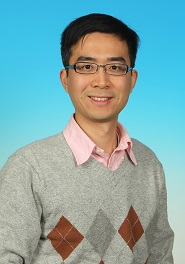The main goal of modern drug discovery is to identify and develop chemical molecules that can selectively target and tightly bind themselves to protein receptors to inhibit their functions. Accurately predicting “tightness” (free energies) and “pose” (the orientation) of binding is of central importance to this process. ‘In-silico’ drug design refers to the use of sophisticated computer modeling, which greatly reduces the need for expensive lab testing and clinical trials. In this talk, Professor Huang will discuss how recent breakthroughs in computational chemistry have revolutionized drug discovery and greatly shortened the timeframe from lead compounds to viable drug candidates. He will demonstrate how large-scale free energy simulations can simultaneously optimize the potency, selectivity and solubility of lead compounds, using the treatment of autoimmune disease as an example. He will also explain how incorporating the motions of target protein molecules into drug discovery is dramatically expanding therapeutic possibilities and enriching the repertoire of drug targets, by allowing chemists to explore new biological targets that have previously been unattainable.









